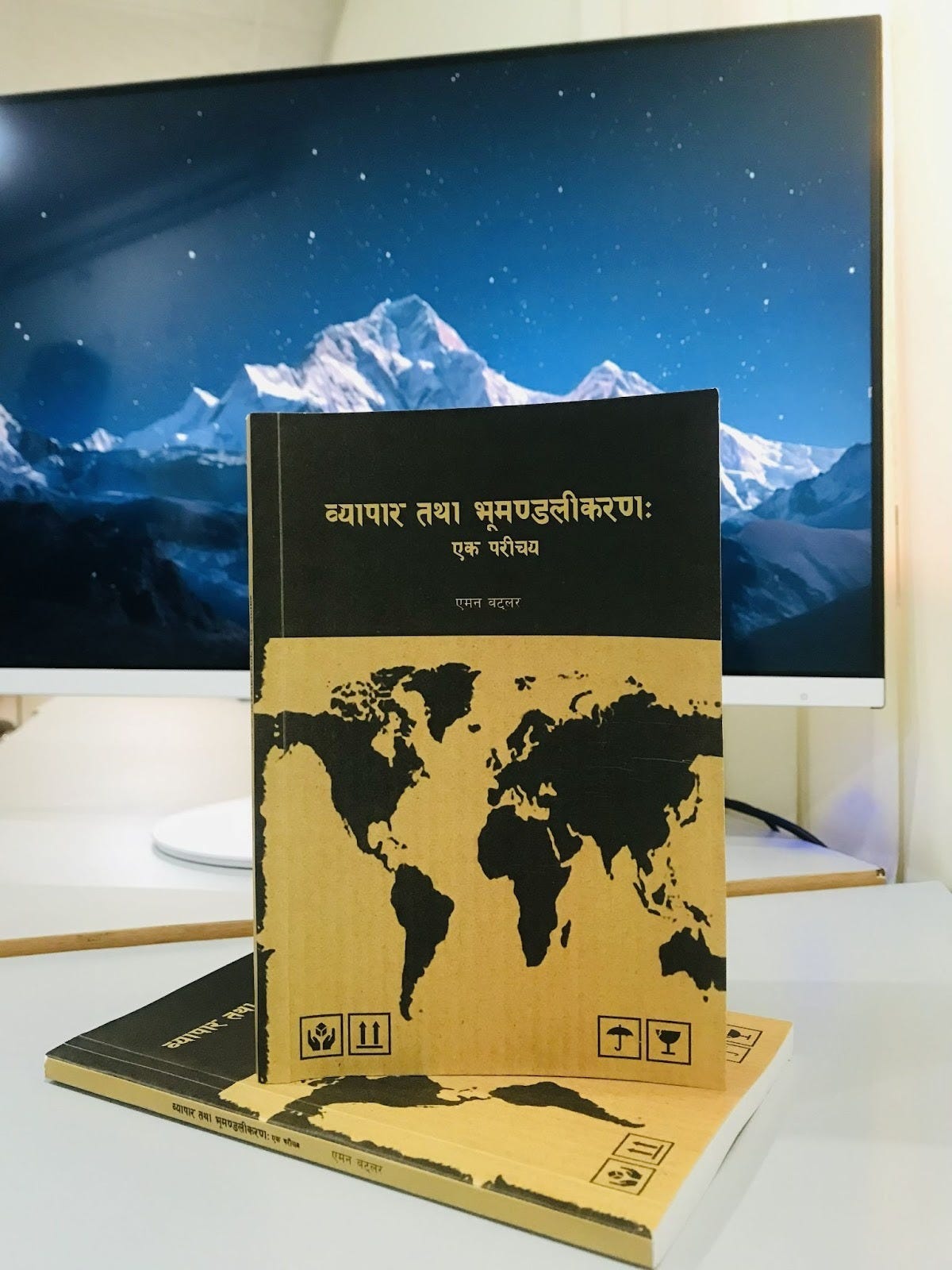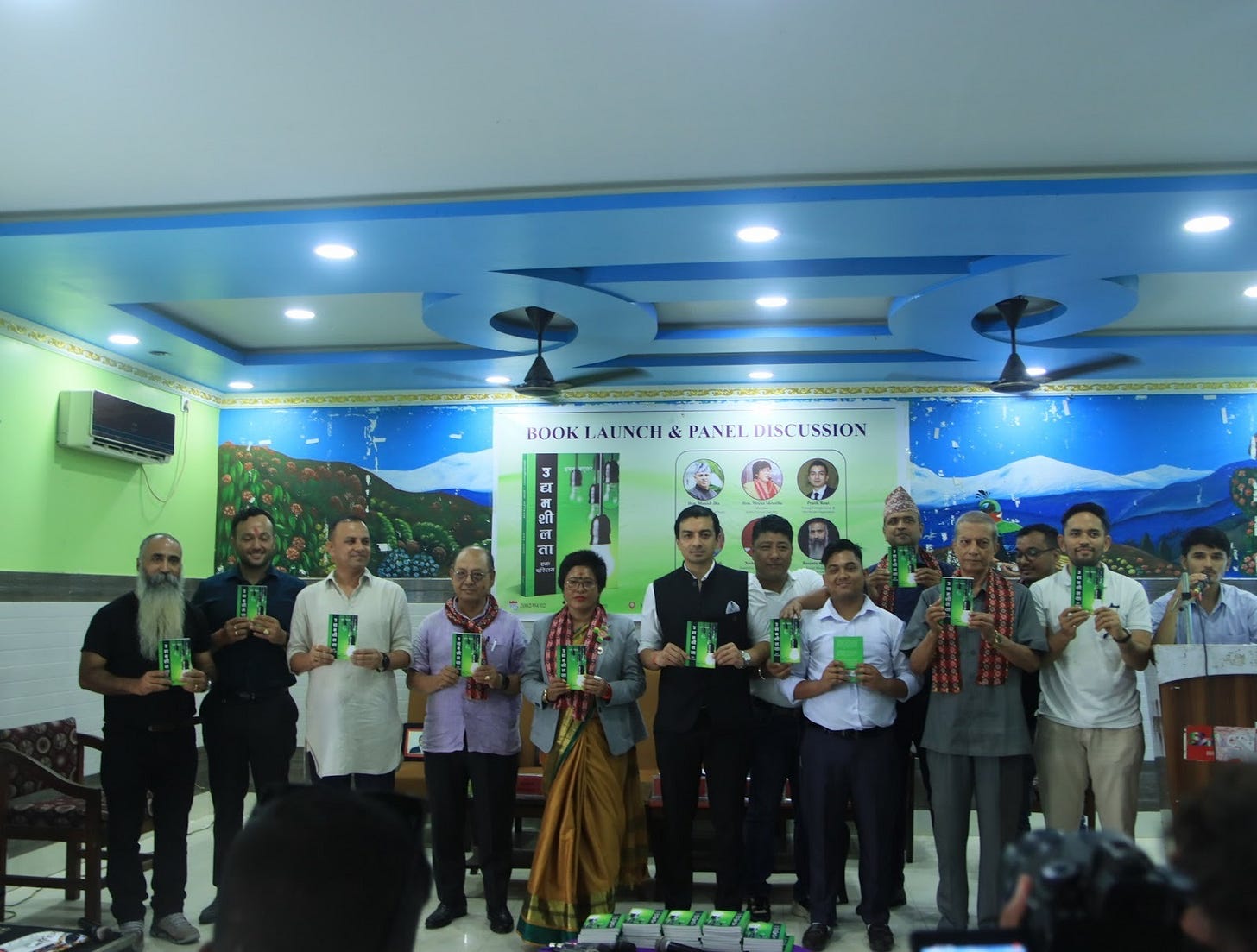A prosperous future for Nepal?
Several organisations working to create a free and stable future for Nepal
The Whetstone Freedom Fund (WFF) is an international initiative founded by the Institute of Economic Affairs in honour of the late Linda Whetstone, to support classical liberal ideas around the world. Each month on Insider we take a deep dive into the countries and partnerships which are being supported by the WFF.
Last month, the world’s attention turned to Nepal amid widespread violence against protestors and, in turn, government officials. To most people, Nepal is the home of Mount Everest, the Himalayas, and the Annapurna Trail; it rarely makes the headlines for political reasons.
But Nepal has a unique and fascinating political history. Unified under a monarchy in 1768, the country maintained its independence as a buffer state between British India and several incarnations of the Chinese Empire. As independent kingdoms in the region were swallowed up by India, Pakistan, and China in the 1950s and 60s, Nepal remained. Although flashpoints sprung up across Asia during the Cold War, Nepal suffered a decade-long brutal civil war between its government and Maoist insurgents that started in 1996 and ended in 2006 taking the lives of around 17,000 people.
Its monarchy was crippled in 2001 by a massacre of King Birendra and his family. The investigation report says that the crime has been committed by the deranged and drug-fueled Crown Prince Dipendra, who became King for three days while in a coma after murdering his father and attempting to kill himself (though many Nepalese believe that the massacre is still a matter of mystery and controversy). On May 28 2008, the first Constituent Assembly abolished the 240-year-old monarchy and declared Nepal as a Federal Democratic Republic.
The outbreak of violence resulting from anti-corruption demonstrations in September put Nepal at the centre of the Western news cycle. On the 8th September, security forces opened fire on protesters, killing 19, injuring 347, and kickstarting a cycle of violence between demonstrators and the state which would lead to the Prime Minister’s resignation and chaos throughout the country. An interim government now rules with elections slated for March 2026.
Amid this turmoil, there are several organisations working to create a free, stable, and prosperous future for Nepal. Two, Bikalpa and the Samriddhi Foundation, have worked with the IEA’s Whetstone Freedom Fund.

A Tough Sell
Both Bikalpa and the Samriddhi Foundation work against a rather anti-capitalist backdrop – rhetorically at least. The 2015 Nepalese constitution states that Nepal has a ‘commitment to create the bases of socialism’. Explicitly socialist or communist parties hold 41/59 seats in the country’s upper house and 136/275 in the lower house (prior to its dissolution amid the recent unrest). After the civil wars of the 1990s and early 2000s and subsequent abolition of the monarchy, Marxism and Marxist parties have played a central role in Nepali politics.
But that doesn’t tell the full story. Nepal has competitive multi-party democracy and its measured economic freedom has been on a steady upward trajectory (from 4.5 in 1980 and 6.1 in 2010 to 6.4 in 2023). The Communist Party of Nepal (Unified Marxist–Leninist), one of the largest parties in the country whose chairman was the Prime Minister who resigned after recent protests, has at various times declared support for the former constitutional monarchy, multi-party democracy, and a market economy.
However, as both of our partners acknowledge, ‘capitalism’ remains a dirty word in Nepal, even as the country has moved away from Marxist influence in practice.
Reframing the Debate
Given the hostility to capitalism among Nepal’s opinion formers, both the Samriddhi Foundation and Bikalpa have worked with the Whetstone Freedom Fund to try and bust some of the foundational myths about markets and economic freedom.
The Samriddhi Foundation has translated four IEA books to help them do just that: Foundations of a Free Society, An Introduction to Capitalism, An Introduction to Trade and Globalisation, and An Introduction to Economic Inequality. Most recently, their project on economic inequality aimed to tackle one of the most pervasive criticisms that capitalist ideas face in Nepal.
Their project challenged the core narrative at the heart of the inequality debate by explaining that wealth creation is a positive sum game; the rich and the poor may become wealthier at different rates but it is possible for both to be better off in a market economy.
In applying the ideas in the book to Nepal’s circumstances, the Samriddhi Foundation emphasised the ways in which government intervention creates artificial inequalities. In Nepal, the clearest case is crony capitalism, whereby the government often protects incumbent corporations from new competition and grants monopoly privileges to others.
Through launch events across three of Nepal’s largest cities, they attracted young activists, academics, and economic journalists to engage with these ideas. Two book reviews in the English and Nepali press ensured further cutthrough in the country’s battle of ideas. Through book distribution and online promotion, they reached almost 10,000 people, ensuring that the alternative approach to inequality found a larger audience.
Bikalpa’s latest WFF project had a similar aim in a different, but equally important, area: entrepreneurship. As is the case in many Asian countries, entrepreneurship is viewed as a low status profession by many. As Bikalpa CEO Basanta Adhikari has written:
“The stereotype that runs in society and even at the policy level usually categorizes businessmen and entrepreneurs as evil, trying to rob poor consumers of their hard-earned money.”
By translating An Introduction to Entrepreneurship and promoting its ideas, Bikalpa aimed to start a shift in societal perceptions of entrepreneurs, improve understanding of their economic importance, and highlight the policy barriers they face.
The book’s launch event was a success, bringing more than 170 students, academics, businesspeople, aspiring entrepreneurs, and journalists together to learn about the ideas in the book. The launch was led by a panel made up of the founder of a successful publishing firm, the book’s translator, a member of the Koshi Provincial Assembly, and the national spokesperson for the National Independence Party, one of Nepal’s largest non-Marxist political groups. The event was also featured in more than a dozen media outlets.
Bikalpa built on the successful launch by hosting two student seminars which focused on chapters two and nine of the book which explain the crucial economic role of entrepreneurs and the policies necessary to exploit their wealth-creating potential.
Bikalpa’s project also drew larger audiences online. They published a video explaining key policy issues affecting entrepreneurs which generated over 6,000 views, while their promotion of content related to the book gained almost 50,000 impressions. Thanks to their partnership with a local publisher, Bikalpa doubled the expected number of printed copies distributed from 500 to 1,000.
In total, our Nepalese partners have reached almost 75,000 people through WFF projects in the last two years alone. Their work will continue to ensure that liberal, free market ideas are part of the national conversation as Nepal takes its first steps in a new direction.
How You Can Help
With the WFF’s support our partners are spreading the foundational ideas of a free society right across the globe. In Nepal and beyond, the WFF continues Linda Whetstone’s legacy of supporting organisations to defend and expand liberty in the places that need it the most. None of this work would be possible without your support. If you would like to support the Whetstone Freedom Fund or find out more about the work we do, visit our website.





